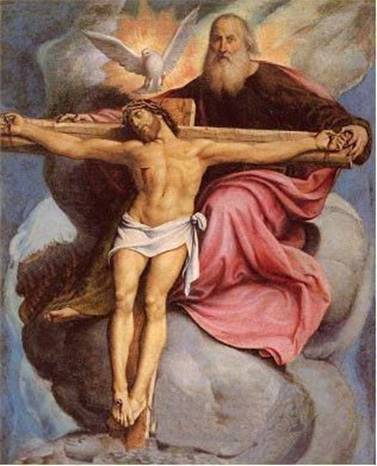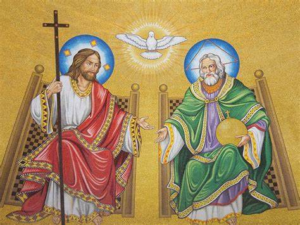
Twenty-first Sunday in Ordinary Time
by Fr. Ivan Olmo
“Lord, your love is eternal; do not forsake the work of your hands.” When we consider the word “eternal,” other words come to mind like everlasting, undying, unending, perpetual, endless, ceaseless, timeless, always, forever, without beginning and without end. We therefore can only speak of God in these terms for only God is everlasting, undying, unending, perpetual, endless, ceaseless, timeless, always, forever, without beginning and without end, eternal. In referring to God in these terms and in this way, we can better understand who God is and how he forms an everlasting bond and eternal friendship with the masterpieces he creates and the gracious works he forms with the use of his hands. In these terms, we can better describe and speak of God’s attributes, which are timeless, and more accurately describe the eternal relationship he shares with all creation and how he relates personally and intimately to his beloved creatures in and through creation. Saying God is eternal is by nature the same as saying God is love, therefore, God’s love is and must be eternal. Love is eternal and will last forever and always. God’s love is forever always, and will perpetually be the same always. His love endures forever, therefore, God’s love is without end. Scripture reminds us that without love, without God, we have nothing, gain nothing, and are nothing. However, with love, with God, we can bear all things, believe all things, hope all things, and endure all things for God who is love never ever fails. God is most patient forever, his kindness is undying and his mercy eternal. At times, we choose to use eternal words to describe our own friendships in life and the situations we experience. However, can we truly say and mean with absolute certainty and truth when we say to another person, I will never hurt or fail you? Will you never fail and never hurt another individual ever, promise? Never in thought, never in words, never in speech, never in intention, never ever, ever fail or hurt another individual? Can someone else really say and mean that they will never betray you, that they will love you always, or that they will be your best friend forever? Can we make those kind of statements without adding or including God to the statement who truly is eternal? Shouldn’t we clarify forever statements by adding “with the help of God’s grace” or “only in Christ”? Then we can say with confidence and truly mean our love is eternal, our friendship forever, by including God’s grace.
Reflections from the Heart – November 29, 2020

Reflections from the Heart – November 22, 2020

Reflections from the Heart – November 15, 2020

Reflections from the Heart – November 8, 2020

Reflections from the Heart – November 1, 2020

Reflections from the Heart – October 25, 2020

Reflections from the Heart – October 18, 2020

